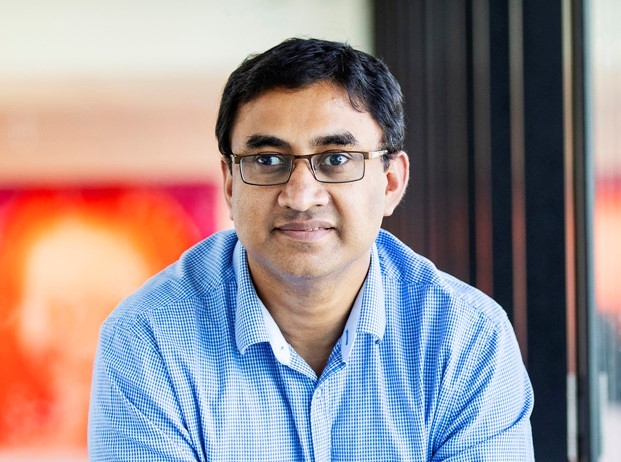The GLO Discussion Paper of the Month of April underscores the need for further research to consider the medium and long run economic impacts of COVID-19 and its impacts on human capital accumulation, early-life exposure and labor market discrimination.
See below links to further work of the GLO network on the corinavirus.
See also below the list of all GLO DPs of April with links to free access.
GLO Discussion Papers are research and policy papers of the GLO Network which are widely circulated to encourage discussion. Provided in cooperation with EconStor, a service of the ZBW – Leibniz Information Centre for Economics, GLO Discussion Papers are among others listed in RePEc (see IDEAS, EconPapers). Complete list of all GLO DPs downloadable for free.
GLO Discussion Paper of the Month: April
524 The Short-Term Economic Consequences of COVID-19: Exposure to Disease, Remote Work and Government Response – Download PDF
by Béland, Louis-Philippe & Brodeur, Abel & Wright, Taylor
Author Abstract: In this ongoing project, we examine the short-term consequences of COVID- 19 on employment and wages in the United States. Guided by a pre-analysis plan, we document the impact of COVID-19 at the national-level using a simple difference and test whether states with relatively more confirmed cases/deaths were more affected. Our findings suggest that COVID-19 in- creased the unemployment rate, decreased hours of work and labor force participation and had no significant impacts on wages. The negative impacts on labor market outcomes are larger for men, younger workers, Hispanics and less-educated workers. This suggest that COVID-19 increases labor market inequalities. We also investigate whether the economic consequences of this pandemic were larger for certain occupations. We built three indexes using ACS and O*NET data: workers relatively more exposed to disease, work- ers that work with proximity to coworkers and workers who can easily work remotely. Our estimates suggest that individuals in occupations working in proximity to others are more affected while occupations able to work remotely are less affected. We also find that occupations classified as more exposed to disease are less affected, possibly due to the large number of essential workers in these occupations.
The Journal of Population Economics welcomes submissions dealing with the demographic aspects of the Coronavirus Crisis. After fast refereeing, successful papers are published in the next available issue. An example:
Yun Qiu, Xi Chen & Wei Shi (2020): Impacts of Social and Economic Factors on the Transmission of Coronavirus Disease 2019 (COVID-19) in China, GLO Discussion Paper, No. 494.
REVISED DRAFT NOW forthcoming: Journal of Population Economics, Issue 4, 2020.
SEE FOR MORE DETAILS AND FREE ACCESS TO THE PREPUBLICATION REVISED DRAFT!
Further publication on COVID-19 of a GLO DP:
GLO Discussion Paper No. 508, 2020
Inter-country Distancing, Globalization and the Coronavirus Pandemic – Download PDF
by Zimmermann, Klaus F. & Karabulut, Gokhan & Bilgin, Mehmet Huseyin & Doker, Asli Cansin is now forthcoming in The World Economy doi:10.1111/twec.12969 PREPUBLICATION VERSION
More from the GLO Coronavirus Cluster
GLO Discussion Papers of April 2020
530 Is Happiness U-shaped Everywhere? Age and Subjective Well-being in 145 Countries – Download PDF
by Blanchflower, David G.
529 Do Swedish schools discriminate against children with disabilities? – Download PDF
by Ahmed, Ali & Hammarstedt, Mats & Karlsson, Karl
528 Working From Home Under COVID-19: Who Is Affected? Evidence From Latin American and Caribbean Countries – Download PDF
by Delaporte, Isaure & Peña, Werner
527 The Perceived Well-being and Health Costs of Exiting Self-Employment – Download PDF
by Nikolova, Milena & Nikolaev, Boris & Popova, Olga
526 When Goal-Setting Forges Ahead but Stops Short – Download PDF
by Islam, Asad & Kwon, Sungoh & Masood, Eema & Prakash, Nishith & Sabarwal, Shwetlena & Saraswat, Deepak
525 Longer School Schedules, Childcare and the Quality of Mothers’ Employment: Evidence from School Reform in Chile – Download PDF
by Berthelon, Matias & Kruger, Diana & Lauer, Catalina & Tiberti, Luca & Zamora, Carlos
524 The Short-Term Economic Consequences of COVID-19: Exposure to Disease, Remote Work and Government Response – Download PDF
by Béland, Louis-Philippe & Brodeur, Abel & Wright, Taylor
523 Misclassification-errors-adjusted Sahm Rule for Early Identification of Economic Recession – Download PDF
by Feng, Shuaizhang & Sun, Jiandong
522 A spatial analysis of inward FDI and rural-urban wage inequality: Evidence from China – Download PDF
by Wang, Hao & Fidrmuc, Jan & Luo, Qi
521 The technological contest between China and the United States – Download PDF
by Toro Hardy, Alfredo
520 How do we think the COVID-19 crisis will affect our careers (if any remain)? – Download PDF
by Baert, Stijn & Lippens, Louis & Moens, Eline & Sterkens, Philippe & Weytjens, Johannes
519 Bottom incomes and the measurement of poverty and inequality – Download PDF
by Hlasny, Vladimir & Ceriani, Lidia & Verme, Paolo
518 Automation and Demographic Change – Download PDF
by Abeliansky, Ana Lucia & Prettner, Klaus
517 Biomarkers, disability and health care demand – Download PDF
by Davillas, Apostolos & Pudney, Stephen
516 Confronting COVID-19 Myths: Morbidity and Mortality – Download PDF
byJelnov, Pavel
515 The Semicircular Flow of the Data Economy and the Data Sharing Laffer curve – Download PDF
by de Pedraza, Pablo & Vollbracht, Ian
514 Commuting and self-employment in Western Europe – Download PDF
by Giménez-Nadal, José Ignacio & Molina, José Alberto & Velilla, Jorge
513 Italian Workers at Risk During the Covid-19 Epidemic – Download PDF
by Barbieri, Teresa & Basso, Gaetano & Scicchitano, Sergio
512 Do Quarantine Experiences and Attitudes Towards COVID-19 Affect the Distribution of Psychological Outcomes in China? A Quantile Regression Analysis – Download PDF
by Lu, Haiyang & Nie, Peng & Qian, Long
511 Teaching ‘out of field’ in STEM subjects in Australia: Evidence from PISA 2015 – Download PDF
by Shah, Chandra & Richardson, Paul & Watt, Helen
510 BrExit or BritaIn: Is the UK more Attractive to Supervisors? An Analysis of Wage Premium to Supervision across the EU – Download PDF
by Biagetti, Marco & Giangreco, Antonio & Leonida, Leone & Scicchitano, Sergio
509 What makes work meaningful and why economists should care about it – Download PDF
by Nikolova, Milena & Cnossen, Femke
508 Inter-country Distancing, Globalization and the Coronavirus Pandemic – Download PDF
by Zimmermann, Klaus F. & Karabulut, Gokhan & Bilgin, Mehmet Huseyin & Doker, Asli Cansin
507 The children are alright: Revisiting the impact of parental migration in the Philippines – Download PDF
by Pajaron, Marjorie & Latinazo, Cara T. & Trinidad, Enrico G.
GLO DP Managing Editor: Magdalena Ulceluse, University of Groningen. DP@glabor.org 
Ends;













